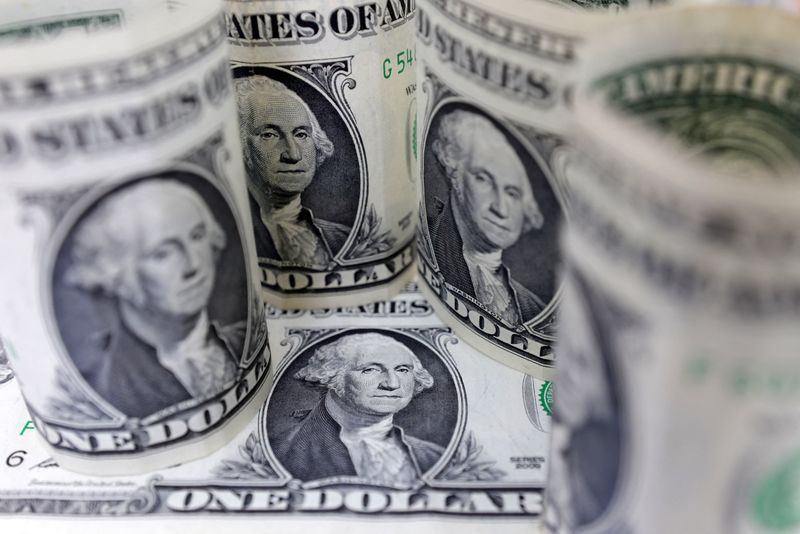By Gertrude Chavez-Dreyfuss
NEW YORK (Reuters) - Foreign inflows into U.S. Treasuries posted a record in the month of August, data from the U.S. Treasury department showed on Tuesday, as investors speculated about a pivot by the Federal Reserve away from aggressive tightening.
Data showed that foreign investors poured an all-time peak of $174.2 billion into U.S. Treasuries, up from $23 billion in July.
The overall data, however, is a lagging indicator and the numbers are often outdated. Analysts though look at this report to spot trends on foreign buying of U.S. assets.
That said, it was in August that July inflation figures were released showing price pressures on the consumer and producer side moderated more than expected for the month. U.S. consumer prices did not rise in July due to a steep decline in gasoline costs, delivering the first notable sign of relief for Americans who have watched inflation climb over the past two years.
Investors at the time had speculated that the Fed would moderate the pace of rate hikes, a notion that was dashed at the central bank gathering in Jackson Hole in late August. Fed Chair Jerome Powell, at the meeting, reinforced the Fed's commitment to stamping out inflation.
The foreign inflows, however, did not square up with the price action in Treasuries. The benchmark 10-year Treasury yield started August at 2.605%, and ended the month at 3.110%, or a 50 basis-point increase, suggesting that investors were selling Treasuries, not buying.
The report also showed that Japanese holdings of Treasuries dropped to $1.199 trillion in August, from $1.234 trillion the previous month. Japan, which reduced its stash of U.S. government debt for a second straight month, remains the largest non-U.S. holder of Treasuries.
Central banks have been known to sell their Treasury holdings in order to defend their struggling currencies.
And the yen has struggled mightily against a robust U.S. dollar that has surged due to the Fed's big rate hikes. So far this year, the yen has plunged nearly 23% against the greenback. For the month of August, the yen fell 4% against the dollar.
China, on the other hand, pushed up holdings of Treasuries a little bit to $971.8 billion, from $970 billion in July, rising for a second straight month.
Overall, foreign holdings of Treasuries rose to $7.509 trillion in August, from $7.501 trillion in July, data showed.
In other asset classes, foreigners sold U.S. equities in August for an eighth straight month to the tune of $26.85 billion, from outflows of $60.32 billion in July. July's outflow was the largest since March.

U.S. corporate bonds posted inflows in August of $9.45 billion, up slightly from July's $8.78 billion inflows. Foreigners were net buyers of U.S. corporate bonds for eight straight months.
The Treasury data also showed U.S. residents once again sold their holdings of long-term foreign securities, with net sales of $22.7 billion in August, from sales of $27.2 billion the previous month.